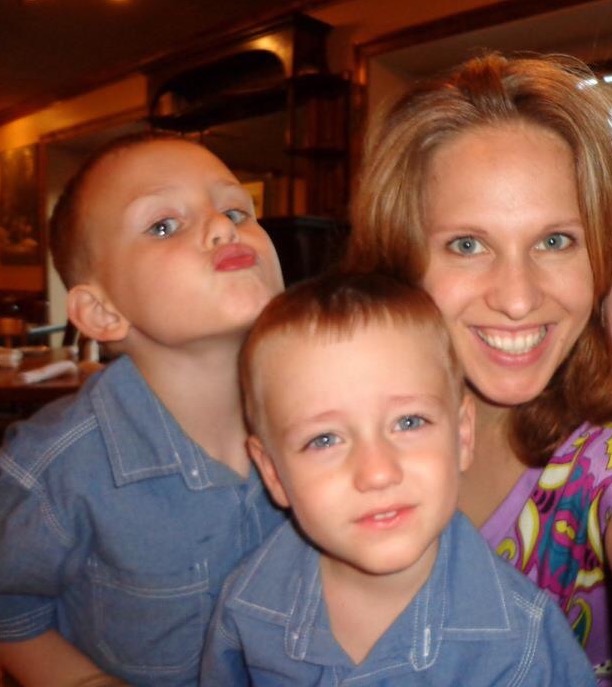
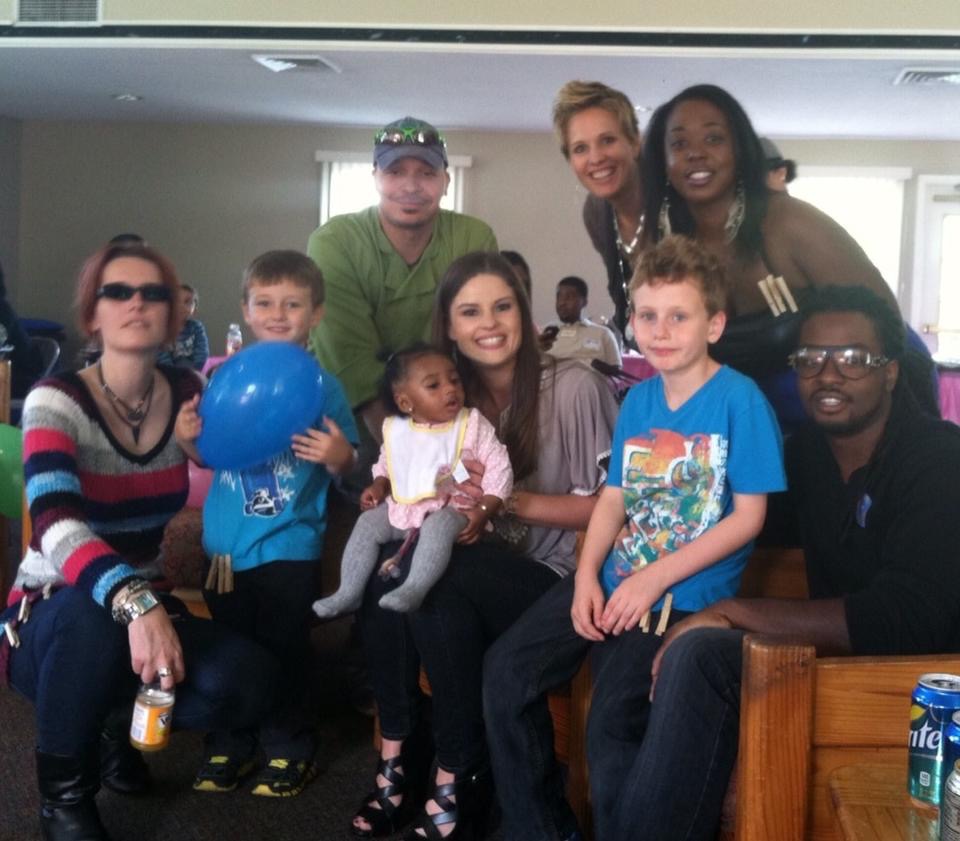
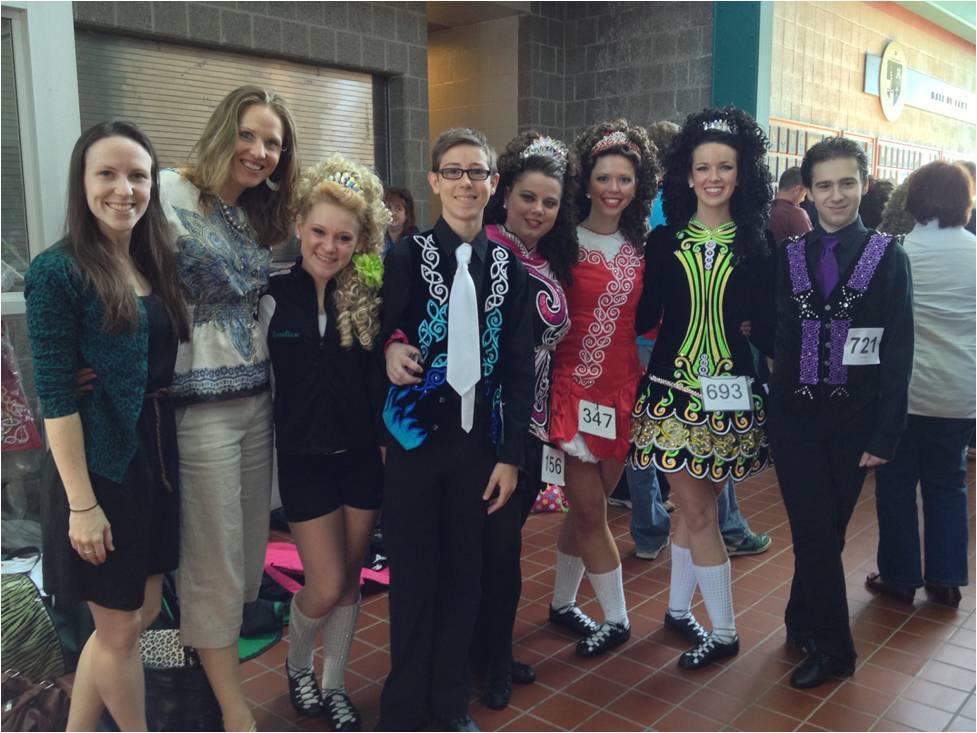

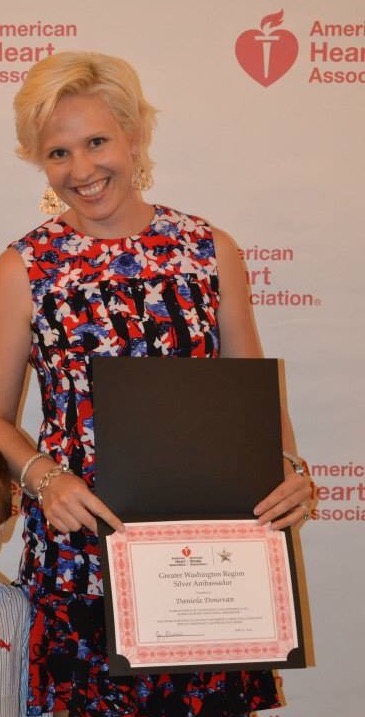
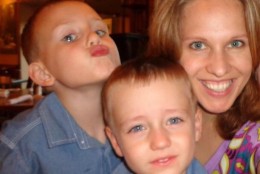
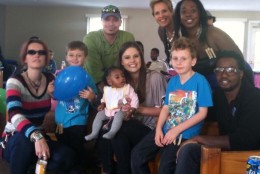
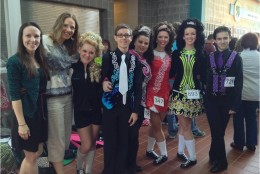
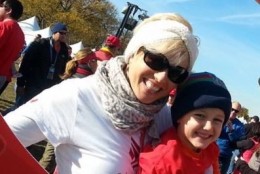
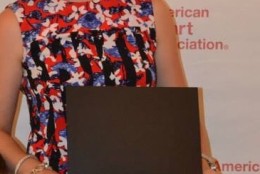
WASHINGTON — Daniela Donovan moves with the grace of a dancer, and she smiles with the pure joy of a survivor.
“I was competing at a world level in Irish dance, and I had no idea that heart disease would be something that I would be affected with,” she says.
It came on suddenly. At 30, the Fredericksburg, Virginia, mom of two young boys had a fainting spell, then another, and another. Soon, fatigue took over her life. She could sleep 13 hours and still feel exhausted and unable to keep up with her sons.
Many months of visits to a family doctor only resulted in frustration.
“They thought it was hormonal, and then they thought it was anxiety,” she says. Finally, she confronted the physician’s assistant assigned to her case.
“I sat and I cried in his office — tears were just streaming down my face — and I said ‘Something is wrong with me; please, help me,'” Donovan recalls.
His response was to order an electrocardiogram of her heart. When the first set of results came back, he ran it again — the registered heartbeat was so low he thought something was wrong with the electrodes.
The pieces of the puzzle began to slowly come together. Various causes of her low heart rate — sometimes 30 beats a minute — were checked and ruled out. Finally, a specialist stepped in — Donovan calls him the “electrician” — who diagnosed her faulty cardiovascular wiring.
He received her case on a Tuesday and told her if she didn’t have a pacemaker implanted Wednesday, she would be dead by Thursday. The surgery was hastily arranged, and when she came out of the anesthesia, Donovan says, “I felt better than I had in years.”
She got her life back, and started to speak out on behalf of women’s heart health, becoming a local ambassador for the Greater Washington affiliate of the American Heart Association.
Her goal is to convince young women to take charge of their heart health and realize heart disease does not discriminate; it can happen to just about anyone.
That goal is also dear to Dr. Geetha Pinto, a Rockville, Maryland, cardiologist who, like Donovan, is a 30-something woman with a message for her generation.
“More women die of heart disease than any other diseases, including breast cancer,” she says. And while most of these patients are far older than Donovan, Pinto says, “that does not mean that young people cannot have heart disease.”
She says women have to remember that symptoms of heart trouble aren’t always the same for them as for men. Men are far more likely to have severe chest pain, while women often experience extreme fatigue, shortness of breath or nausea.
But it’s just as important for women to remember that lifestyle choices they make when young can affect their heart well into the future. They include maintaining a healthy weight, and getting enough exercise.
“This is not for a day or two. What we really do in our 20s and 30s does matter,” Pinto says.
Donovan adds one more “must-do” to the heart-health list. She wants women to speak up and be proactive, demanding answers for anything that just doesn’t seem right.
“Have your regular checkup and have your heart listened to,” she suggests.
And for those who think heart problems can’t happen to them, Donovan offers advice based on her own near brush with death in her 30s: “Don’t be in denial.”







